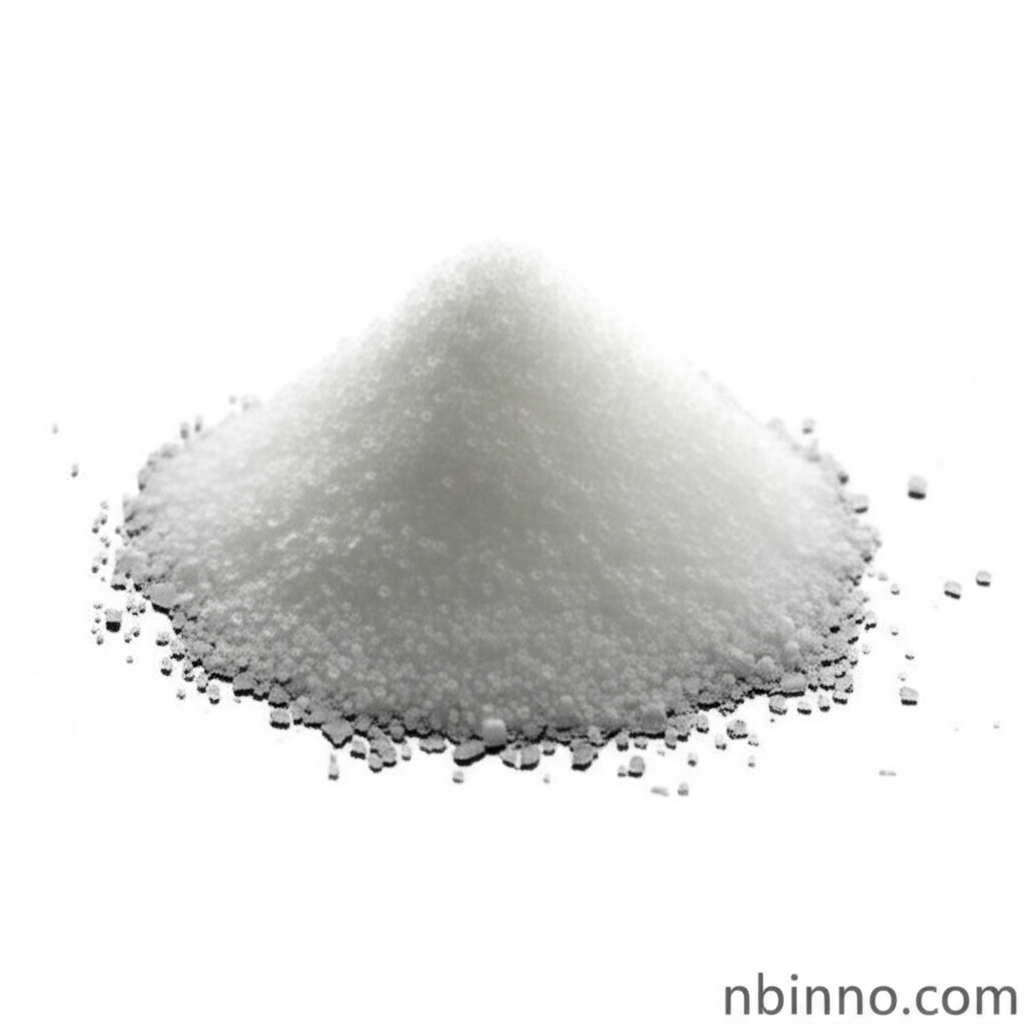Adipic Acid: The Backbone of Nylon and Industrial Innovation
Discover the critical role of Hexanedioic Acid in creating durable materials and enhancing various industrial processes.
Get a Quote & SampleProduct Core Value

Adipic Acid
Adipic acid, also known as hexanedioic acid (CAS 124-04-9), is a white crystalline powder with significant industrial importance. Its primary function as a key precursor for nylon 66 production underpins its vast application in the manufacturing of durable fibers for textiles, carpets, and engineering plastics. Beyond its role in nylon synthesis, this versatile dicarboxylic acid serves as a vital component in the production of polyurethanes and plasticizers, particularly for PVC products. Its properties also lend themselves to applications as a food acidity regulator, gelling aid, and leavening agent.
- Explore the adipic acid uses for creating high-performance engineering plastics and synthetic fibers.
- Understand the hexanedioic acid industrial applications, from automotive components to consumer goods.
- Learn why adipic acid is the crucial nylon 66 precursor chemical, enabling the production of strong and resilient materials.
- Delve into the CAS 124-04-9 chemical properties that make it a cornerstone in various chemical synthesis pathways.
Advantages Offered
Material Strength and Durability
Leverage the adipic acid for plasticizers to enhance the flexibility and durability of PVC products, ensuring longevity and performance in demanding applications.
Broad Industrial Versatility
Utilize the food grade adipic acid uses as a functional ingredient in food processing, providing acidity regulation and flavor enhancement while meeting stringent quality standards.
Foundation for Advanced Polymers
The dicarboxylic acid industrial significance of adipic acid is evident in its role in synthesizing polyurethanes and other polymers, crucial for advanced material development.
Key Applications
Nylon 66 Manufacturing
As the primary monomer, adipic acid is indispensable for the production of Nylon 66, renowned for its high tensile strength and abrasion resistance, vital for textiles and industrial parts.
Plasticizers and Polyurethanes
Its use in creating plasticizers and polyurethanes contributes to the flexibility and resilience of various plastic products, from films to coatings and sealants.
Food Industry
The application of white crystalline powder adipic acid in the food sector as an acidity regulator and leavening agent enhances food products' taste and texture.
Chemical Synthesis Intermediate
It serves as a key intermediate in the adipic acid manufacturing process for a wide array of organic chemicals, including adhesives, synthetic leather, and perfumes.
